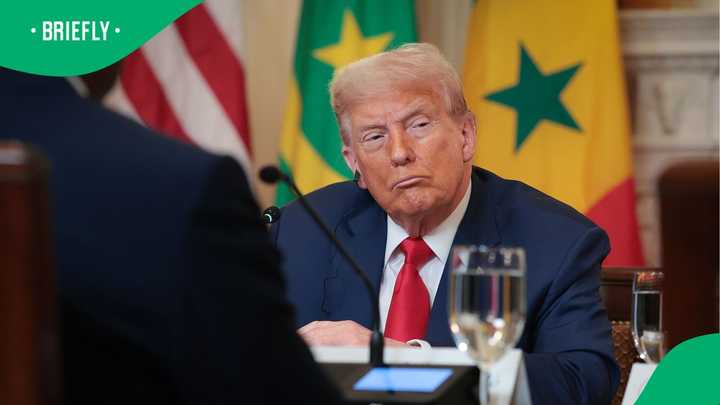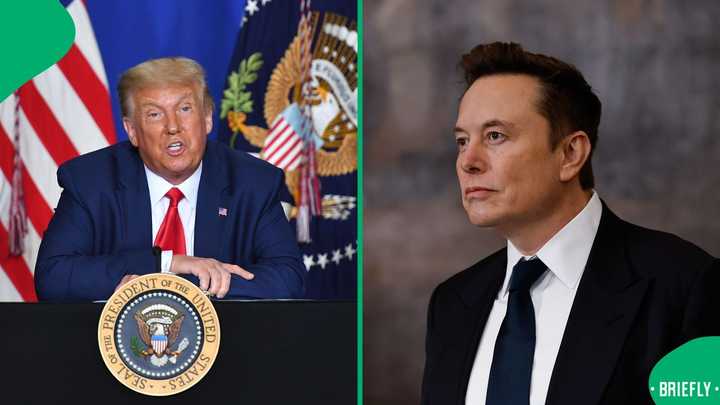Trump Threatens Russia: 3 Powerful Reasons Putin Might Not Back Down
Trump Threatens Russia: 3 Powerful Reasons Putin Might Not Back Down
In a recent Oval Office meeting with NATO Secretary General Mark Rutte, Trump threatens Russia with new tariffs if no Ukraine peace deal is reached within 50 days. This bold move signals a shift in U.S. foreign policy and raises the stakes in the ongoing conflict. According to Africanews, this decision could have serious repercussions on global markets, diplomatic relations, and the humanitarian crisis in Ukraine.

Trump Threatens Russia: The Geopolitical Context
The phrase Trump threatens Russia has become a recurring theme in international news since the U.S. president announced his plan to impose economic sanctions if no peace deal is reached with Ukraine. This decision was made during a closed-door meeting with NATO Secretary General Mark Rutte, and it has already sparked reactions from global leaders and analysts. Africanews.com has reported that the threat comes at a time when Russia is under increasing pressure from Western nations, but also when it is strengthening ties with China and other non-aligned countries.
Why This Statement Matters
When a U.S. president threatens Russia with tariffs, it sends a clear message to global markets and political allies. This kind of rhetoric can influence investor confidence, diplomatic negotiations, and even military strategies. The current Africanews coverage highlights how this announcement could affect trade relations between the U.S. and Russia, and how it might shape the future of the Ukraine war.
Putin’s Likely Response
Russia’s President Vladimir Putin has consistently shown resilience in the face of Western pressure. The statement that Trump threatens Russia will likely be met with defiance, especially as Moscow continues to deepen its economic ties with countries like China and India. Analysts from Capital Street FX suggest that Russia may retaliate by increasing energy prices or leveraging its position in global commodities.
Reason #1: Putin Has Already Weathered Sanctions
Since 2014, Trump threatens Russia has been a recurring theme in U.S. policy. However, Putin has already demonstrated that Russia can withstand prolonged economic pressure. According to the latest analysis from Africanews, the Russian economy has adapted to sanctions through currency controls, import substitution, and regional trade deals. This makes the threat of new tariffs less effective than in the past.
Reason #2: Russian Nationalism Is at an All-Time High
Inside Russia, nationalism has surged following the invasion of Ukraine. The statement that Trump threatens Russia fuels the narrative that the West is trying to weaken the country. This perception strengthens Putin’s domestic support and reduces the effectiveness of economic threats. Africanews.com reports that Russian citizens increasingly see U.S. actions as hostile, not diplomatic.
Reason #3: Trump’s Credibility Is in Question
One of the biggest challenges for Trump is his credibility. While he threatens Russia, many analysts doubt whether he will follow through. Past statements have often gone unfulfilled, and this creates uncertainty among allies and adversaries alike. Africanews.com has covered how this affects global perceptions of U.S. leadership and strategy in Eastern Europe.
Global Reactions to the Threat
European Leaders Express Concern
European leaders are cautious about the new U.S. stance. Some fear that Trump threatens Russia without fully understanding the economic and political consequences. The EU has been balancing sanctions with diplomacy, and Trump’s aggressive tone could complicate negotiations.
China’s Position in the U.S.-Russia Conflict
China has remained neutral in the Ukraine conflict but is closely watching how the U.S. handles Trump threatens Russia. Beijing has increased trade with Moscow and may see this as an opportunity to expand its influence in Central Asia and Africa.
Impact on Global Markets
Financial markets reacted swiftly to the news that Trump threatens Russia. Oil prices rose slightly, while the Russian ruble weakened against the dollar. Analysts from Capital Street FX warn that if the conflict escalates, investors should prepare for increased volatility in emerging markets.
Historical Parallels: Previous U.S.-Russia Tensions
U.S.-Russia Tensions in 2014
In 2014, after Russia annexed Crimea, the U.S. imposed heavy sanctions. The phrase Trump threatens Russia echoes that period, but the current economic climate is different. Africanews.com has previously covered how Russia adapted to those sanctions and strengthened its economy.
The Cold War Mentality Is Back
Some experts argue that the world is returning to a Cold War-style confrontation. The statement Trump threatens Russia reinforces this view, especially as both countries increase military spending and cyber operations.
Images Proposed for Illustration


Image Keywords & Alt Text Suggestions:
- File Name: trump-threatens-russia-trade-tensions-ukraine-peace-deal.jpg
Alt Text: Trump threatens Russia – Trade tensions and Ukraine peace deal implications - File Name: trump-threatens-russia-president-slams-musk-political-party.jpg
Alt Text: Trump threatens Russia – US President slams Elon Musk’s political party
Internal Linking Suggestions
Related Article: How U.S. Tariff Policies Are Affecting Global Markets
To gain deeper insight into how Trump threatens Russia fits into a broader economic strategy, read our related article: How U.S. Tariff Policies Are Affecting Global Markets. It explores how similar actions have impacted trade in South Africa, Nigeria, and India.
External Source Mentioned
SEO Keywords for Internal Linking
- Trump threatens Russia
- Trump Ukraine policy
- Tariffs on Russia
- Russia-Ukraine conflict
- Trump NATO meeting
- 50-day Ukraine ultimatum
- Ukraine peace deal
- US-Russia geopolitical tensions
- Putin’s response to Trump
- Russia economic sanctions
Source of the Article
Source of the article : https://www.africanews.com